Overwhelming in its Vastness
After a short break and some time to process his experience in Antarctica, we caught up with Inspiring Explorer Owain John to get his perspective on the expedition, and find out about the highlights of his trip, and the big challenges he faced.
About Owain
Owain is CEO of Squawk Squad, an educational social enterprise that is inspiring tamariki nationwide to become kaitiaki for Aotearoa. Over the last three years, they’ve engaged 45,000 kiwi kids in learning about different environmental challenges that we face, while enabling them to take action to make a positive change. Owain also co-founded RefillNZ, a single-use plastic water bottle reduction campaign. He is a keen outdoor sports person, who completed the extreme adventure race GODZone, biked the length of New Zealand, and regularly snowboards and white-water kayaks.
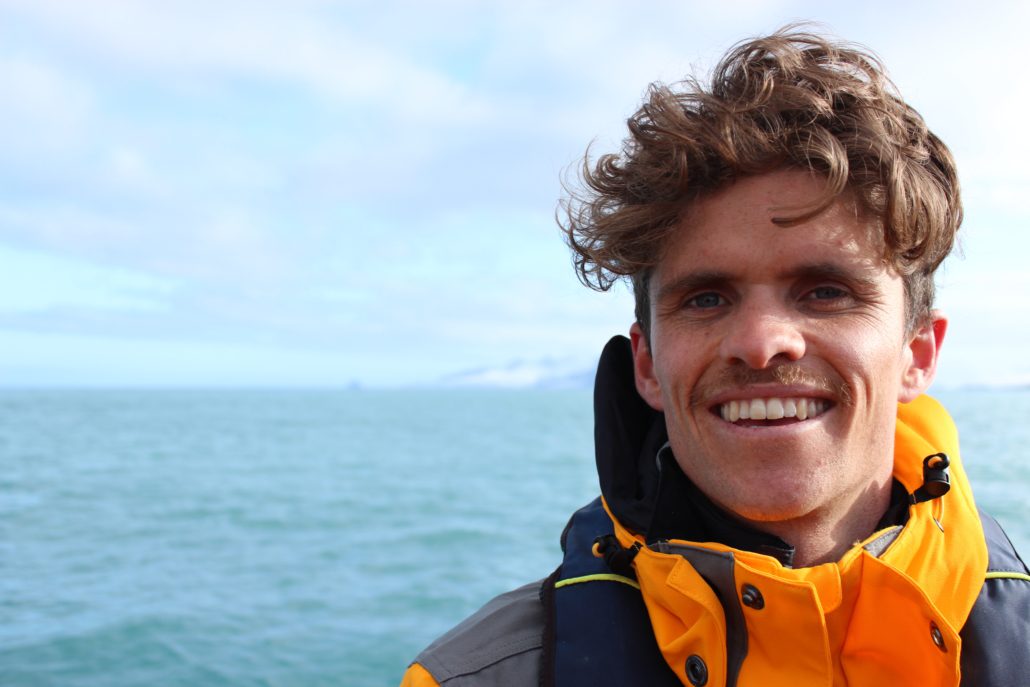 Owain John/Antarctic Heritage Trust
Owain John/Antarctic Heritage Trust Inspiring Explorer Owain
What were your favourite parts of the trip?
The trip was phenomenal. Antarctica is a completely unique place that you can’t compare to anywhere else. My favourite part on the ice was sea kayaking next to giant icebergs. It wasn’t until you got up fairly close to these massive blocks of ice that you could appreciate their immense size and hidden power. I compare them to sleeping giants – huge and silent. But, get too close and you may risk ‘waking them up’, at which point you’ll appreciate how dangerous they can truly be (when the ice fractures or the iceberg rolls).
Another favourite part of the trip was the people I got to meet and connect with. Before I went, I was very much focused on the material experience of the ice, wilderness and the animals, but forming strong friendships with the people on our diverse team became another absolute highlight.
What was the most challenging part? How did you conquer this?
One of the hardest parts was trying to balance the desire with wanting to do everything that I possibly could, with also allowing time for reflection, contemplation and for our outreach programmes. Factors like the jetlag, and not sleeping so well while crossing the Drake Passage meant that at times, we got pretty tired! I realised I had to get clear on what my priorities were in terms of the content I wanted to capture and create a good balance alongside spending time in the team, and making the most of each opportunity. I learned to be ok with not being able to do everything I had planned to do before the trip.
What did you learn or discover about yourself?
I wasn’t expecting to form such close connections with the other people on our team, and for me, that brought home how important people are in our lives, and the amazing connections we can form, especially while sharing such an incredible exploration experience. A nice whakataukī that sums this sentiment up is ‘He aha te mea nui o te ao? He tangata, he tangata, he tangata (What is the most important thing in the world? It is people, it is people, it is people).’
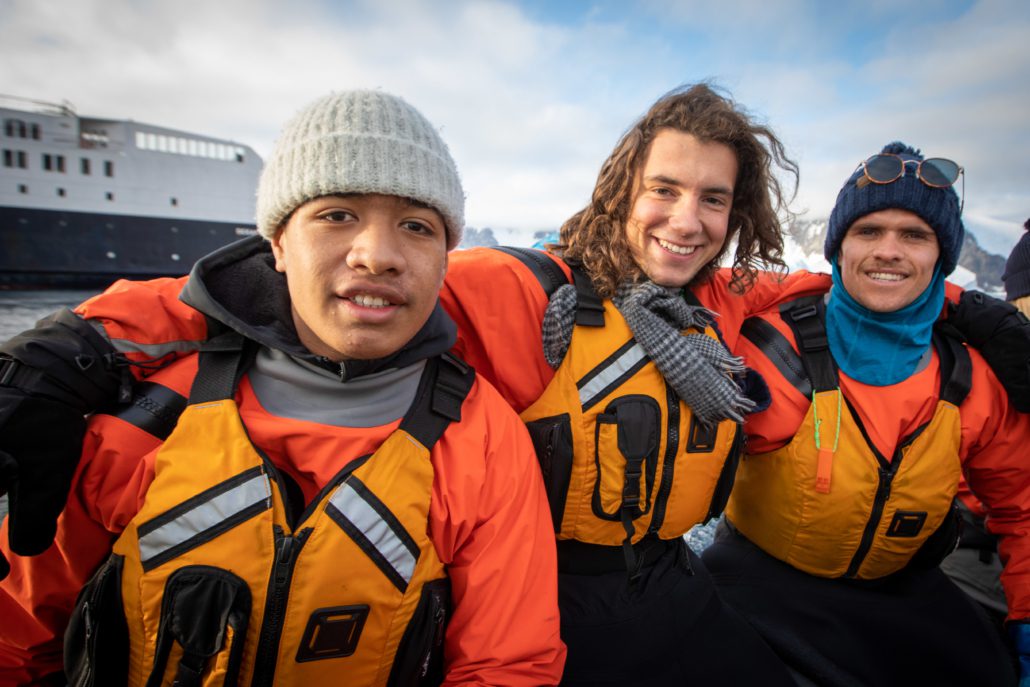 Mike Dawson
Mike Dawson A’aifou, Anzac and Owain
Which sights, sounds, feelings and experiences of Antarctica stand out as you reflect back on your experience?
There were so many. The scale of the ice was incredible, with huge ice mountains falling into the desolate harbours. Hearing the deep rumble and booming of ice falls, not to mention animal sounds such as the crying of an albatross overhead, or the gabble of the penguin colony. Seeing how the animals down there are not fazed by human presence at all was pretty surreal – we haven’t had an influence on them in the same way as we have in other places in the world. Visiting this vast authentic wilderness and appreciating that nature calls the shots made me realise how insignificant we are in some ways, while at the same time knowing we are not insignificant as a human collective.
How did going to Antarctica make you think about the historic polar explorers? In what way did these reflections impact on your personal experience?
My first-hand experience gave me a vivid picture of what it must have been like, and a new respect for the historic explorers. The environment is completely overwhelming, and our big ship was totally dwarfed in each harbour where 100 metre glaciers towered above us and plunged into the ocean. In their small ships, I’m not sure how the early explorers managed! While we had hot showers, good food and warm clothes on our ship, they were stuck on small, damp, cold ships with no fresh food. Thinking about the hardships they endured made me realise how determined they must have been. Whether they were venturing to the South Pole they were obviously pretty strong-minded people who thought it was all worthwhile. Since coming back to New Zealand, I’ve done a lot more reading about the early exploration of Antarctica, as well as the biology and climate side of things.
What was something you experienced that was different to your expectations?
The sheer scale of the ice amazed me time and time again, and I didn’t expect Antarctica to be so mysterious, and overwhelming in its vastness.
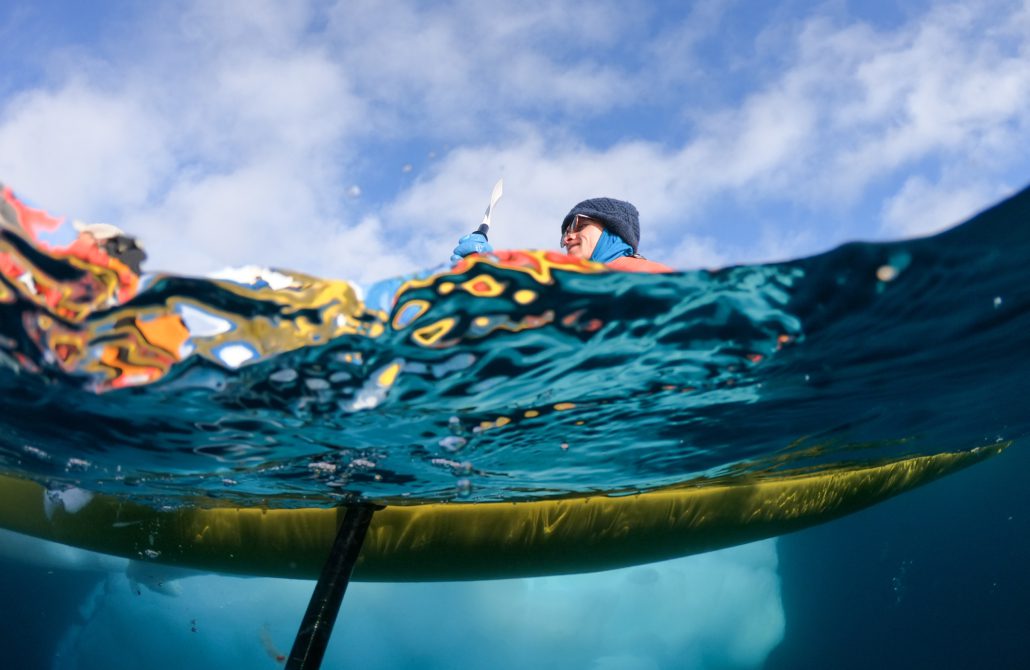 Mike Dawson
Mike Dawson Owain kayaking
When you share your story, what will be the things you want to share most?
The remoteness and scale of the wilderness will be the big one – and how there is nowhere else like it on the planet. The fact the animals down there are oblivious to human presence is something I think we can all reflect on, as well as the impact of climate change.
What other messages will you be giving to audiences about the trip?
Getting kids excited about Antarctica and showing how closely connected we are in New Zealand, given the continent is right on our doorstep. Through our Squawk Squad programme launching in Term 3, we will be delivering key messages around climate change, the spirit of exploration, and the wonders of Antarctica’s environment plus wildlife.
Any comments about the team itself? What were the strengths of the team? Why do you think it worked well together?
We all got on so well despite being so diverse and coming from very different backgrounds. Team building weekend prepared us really well, as it got us on the same page early, aligned our priorities, and got us talking about soft skills. The older mentors on our wider team were great too, as they shared their knowledge and life experiences with us, which I found really insightful.
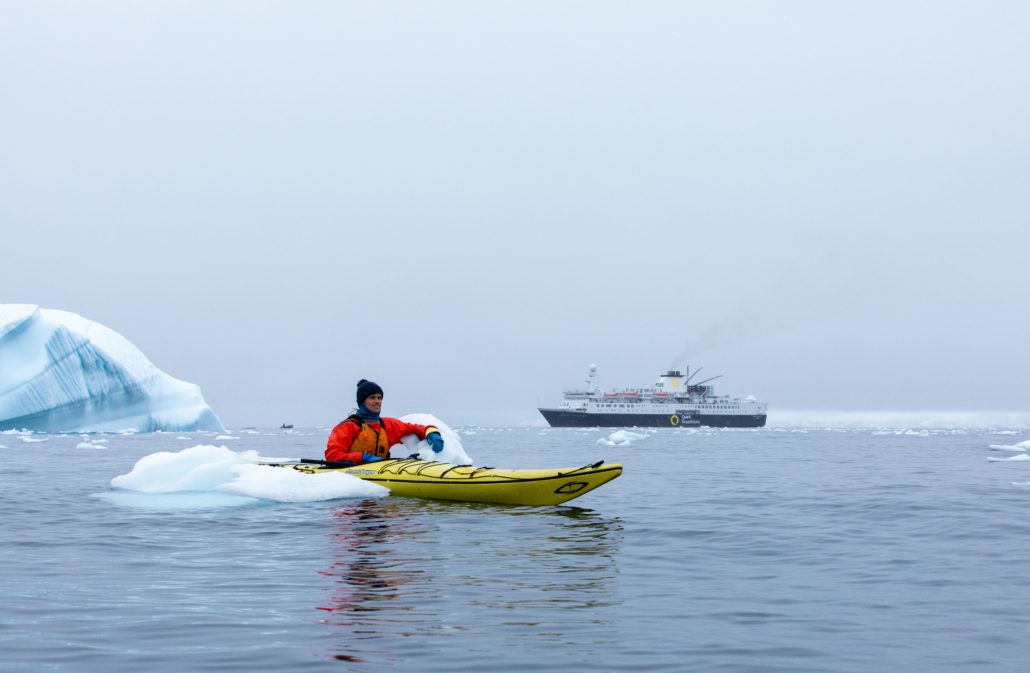 Mike Dawson
Mike Dawson Owain kayaking
How did you and the team deal with the disruption to your trip caused by COVID-19? Did this experience make you reflect on the challenges faced by the historic explorers? What similarities do you think there might be?
We focused on keeping team spirits high and checking in on each other. Having a routine and doing workouts on the boat helped too. The experience made me think about the historic explorers and what it must have been like if they were stuck on a tiny ship in hard conditions – not getting cabin fever would have been key!
Would you recommend others apply for future expeditions and why?
Absolutely! It was a really unique to go somewhere very few people get to go and experience it all with a great group of people. I’m super thankful.
Do you have any advice for future expedition members?
Good planning is key. Definitely try to time your sleep on the plane to help adjust to jetlag, as there are some big days once you get to Antarctica. When it comes to your outreach plan, be super clear on what photographic or video content you want to capture. Don’t just capture content for the sake of it that you ‘might use later’ – as it’s super important to have time to switch off and live in the moment, and not spend all your time behind a device.
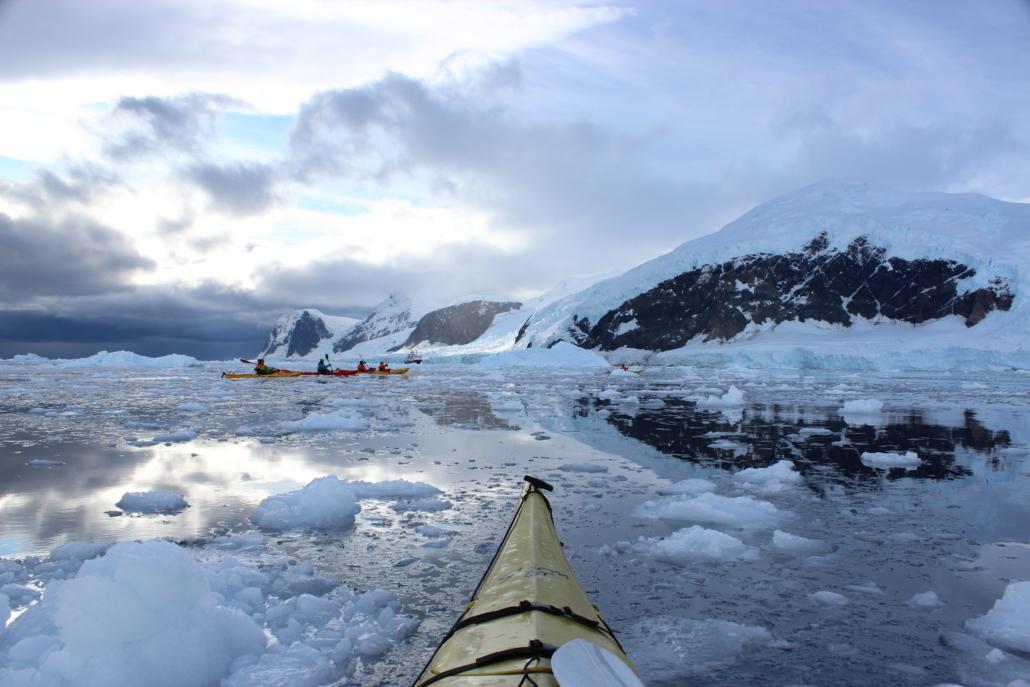 Owain John/Antarctic Heritage Trust
Owain John/Antarctic Heritage Trust View from the kayak


